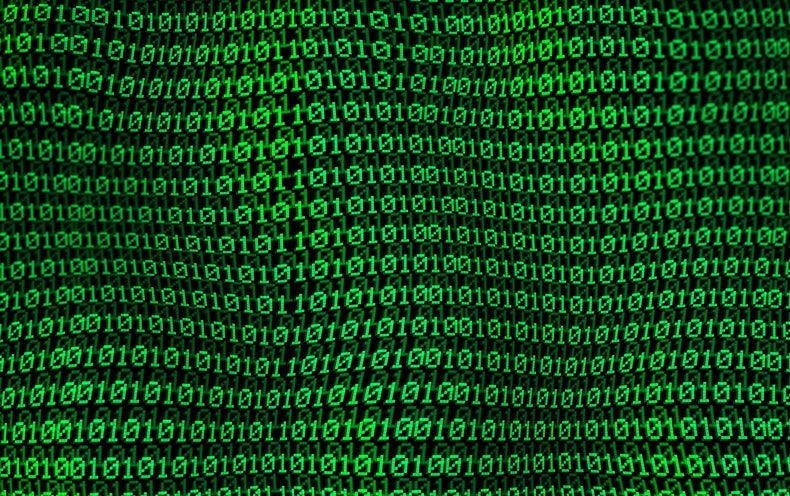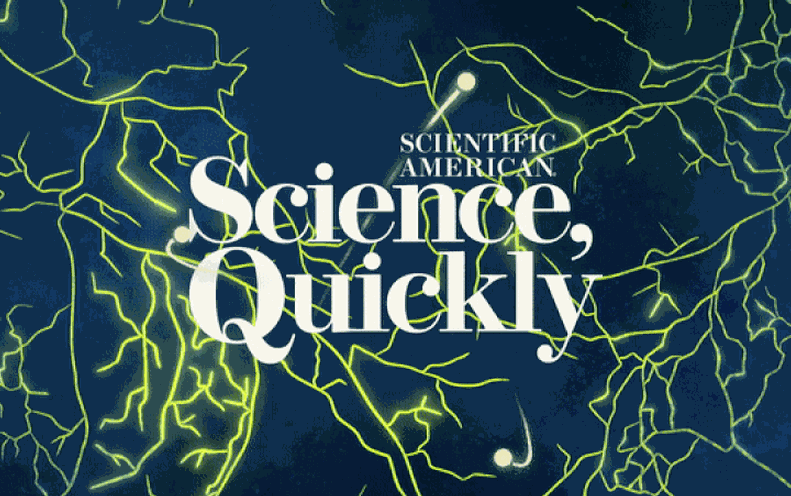Two kinds of transformations copy the fundamental domain to the right and left, as well as to a series of ever-shrinking semicircles along the horizontal axis. These copies fill the entire upper half of the complex plane. A modular form relates the copies to each other in a very particular way. That’s where its symmetries… Continue reading Behold Modular Forms, the ‘Fifth Fundamental Operation’ of Math
Tag: Quantum Stuff
Tech Companies’ New Favorite Solution for the AI Content Crisis Isn’t Enough
Thanks to a bevy of easily accessible online tools, just about anyone with a computer can now pump out, with the click of a button, artificial-intelligence-generated images, text, audio and videos that convincingly resemble those created by humans. One big result is an online content crisis, an enormous and growing glut of unchecked, machine-made material… Continue reading Tech Companies’ New Favorite Solution for the AI Content Crisis Isn’t Enough
The 4 Stages of Conspiracy Theory Escalation on Social Media
The following essay is reprinted with permission from The Conversation, an online publication covering the latest research. Conspiracy theory beliefs and (more generally) misinformation may be groundless, but they can have a range of harmful real-world consequences, including spreading lies, undermining trust in media and government institutions and inciting violent or even extremist behaviors. For… Continue reading The 4 Stages of Conspiracy Theory Escalation on Social Media
A Tower of Conjectures That Rests Upon a Needle
The next step up in that hierarchy is the “restriction” conjecture. If it is true, so is the Kakeya conjecture. (This also means that if the Kakeya conjecture turns out to be false, the restriction conjecture can’t be true.) The restriction conjecture, in turn, is implied by the so-called Bochner-Riesz conjecture. And at the very… Continue reading A Tower of Conjectures That Rests Upon a Needle
‘Species Repulsion’ Enables High Biodiversity in Tropical Trees
For ecologists, tropical rainforests hold many enigmas. A single hectare can contain hundreds of tree species, far more than in forests closer to the poles. Somehow these species coexist in such dizzying abundance that, as naturalists and ecologists have sometimes noted, tropical forests can feel like botanical gardens, where every plant is something new. For… Continue reading ‘Species Repulsion’ Enables High Biodiversity in Tropical Trees
Grand Canyon Gains New Million-Acre Monument
CLIMATEWIRE | President Joe Biden will create a new national monument in Arizona on Tuesday covering close to a million acres of lands surrounding the Grand Canyon important to nearby Native American tribes. The Baaj Nwaavjo I’tah Kukveni–Ancestral Footprints of the Grand Canyon National Monument will be the fifth designated by Biden in the past 10… Continue reading Grand Canyon Gains New Million-Acre Monument
Machine Learning Aids Classical Modeling of Quantum Systems
Understanding the quantum universe is not an easy thing. Intuitive notions of space and time break down in the tiny realm of subatomic physics, allowing for behavior that seems, to our macro sensibilities, downright weird. Quantum computers should allow us to harness this strangeness. Such machines could theoretically explore molecular interactions to create new drugs… Continue reading Machine Learning Aids Classical Modeling of Quantum Systems
How Scientists Are Tackling the Tricky Task of Solar Cycle Prediction
The sun looks immutable, a boring celestial lightbulb that’s always turned on. But this fusion-powered ball of plasma is in constant flux. Every 11 years or so, it swings between slumber and an active, unruly epoch marked by sunspots and solar eruptions, such as flares and plasma outbursts. The sun is now approaching its maximum level of activity in… Continue reading How Scientists Are Tackling the Tricky Task of Solar Cycle Prediction
The Fungi Economy, Part 3: Can Climate Modeling from Space Save Our Forests?
Meg Duff: For Science, Quickly, I’m Meg Duff. [CLIP: Show music] Meg Duff: Last week, if you missed it, I was up in Harvard Forest, learning about a hidden economy: underneath our feet, plants and fungi are constantly trading carbon and nutrients. Duff: Trees use carbon as currency to trade with fungi. Scientists have figured… Continue reading The Fungi Economy, Part 3: Can Climate Modeling from Space Save Our Forests?
The Biggest Smallest Triangle Just Got Smaller
Consider a square with a bunch of points inside. Take three of those points, and you can make a triangle. Four points define four different triangles. Ten points define 120 triangles. The numbers grow quickly from there — 100 points define 161,700 different triangles. Each of those triangles, of course, has a particular area. Hans… Continue reading The Biggest Smallest Triangle Just Got Smaller



